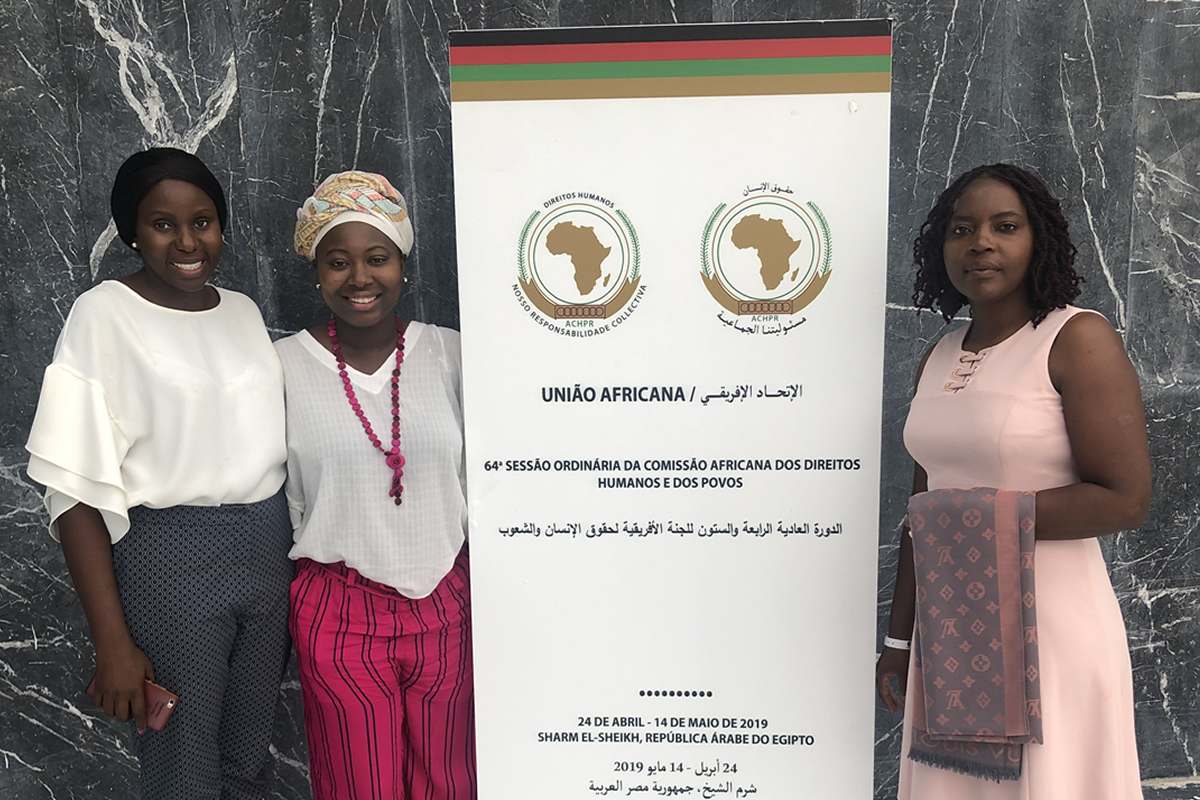On Sunday 28 April 2019, the Special Rapporteur on the Rights of Women in Africa (SRRWA), Commissioner Lucy Asaugbor hosted a panel discussion on State Reporting Obligations and Guidelines to Reporting under the Maputo Protocol which the Centre participated in during the 64th ordinary session of the African Commission on Human and Peoples' Rights which is currently been held in Sharm El Sheikh, Egypt from 24 April to 14 May 2019.
Commissioner Asaugbor noted that only a handful of states parties have actually fulfilled their reporting obligations. In particular, and dishearteningly, only 13 out of the 40 states parties which include Angola, Burkina Faso, Democratic Republic of Congo, The Gambia, Lesotho, Malawi, Mauritania, Namibia, Nigeria, Rwanda, Senegal, South Africa and Togo have included a section on the Maputo Protocol in their state reports. She acknowledged and commended The Gambia and Lesotho being the latest states parties to fulfil this obligation. She noted the need to popularise the Reporting Guideline on the Maputo Protocol adopted by the Commission in 2009, as well as, the importance of the state reporting process in which crucial information is received for giving an overview of the status of women and girls in Africa
Mr Pacharo Kayira, representing the Government of Malawi shared the state party perspective of the impact of the Maputo Protocol. In his presentation, Mr Kayira noted that the Protocol resulted to laws that entrench the rights including constitutional provisions, the Gender Equality Act, Prevention of Domestic Violence Act, the Marriage, Divorce and Family Relations Act and the Trafficking in Persons Act. There exist also policies that further explain the implementation of the rights and the structures or institutions that will implement both the laws and the policies. Some main challenges in implementing the Protocol includes the difficulty in the enforcement of the enacted laws and policies.
On state party perspective of the reporting process, Ms Bafou Jeng representing the Government of The Gambia highlighted that due to the absence of the political will and attitude towards human rights in general under the former regime, the treaty body reporting process was characterised by the lack of state ownership and commitment as the report writing was largely outsourced. However, under the new dispensation, a comprehensive mapping of The Gambia`s treaty body reporting obligations was conducted which resulted in a plan of action on measures for timely reporting. In implementing this plan, a national mechanism to coordinate and facilitate the preparation and submission of state reports was constituted. In order to ensure greater inclusiveness and the taking of ownership, the task force consists of all government ministries, relevant government agencies and Civil Society Organisations. Notwithstanding the successes registered by the Taskforce, the reporting process in The Gambia still has some challenges including limited statistical data from government Ministries and agencies and the need for capacity building for members.
Dr Itumeleng Shale, University of Lesotho spoke on the role of Civil Society Organizations. She highlighted that CSOs are critical in the state reporting process as recognised in the guidelines. CSOs are able to assist in addressing the hurdle of limited statistical data and submitting shadow reports.
Patience Mungwari Mpani of the Centre highlighted the state party reporting technical assistance and training programme. The Centre builds the capacity of state party representatives involved in state party reporting and drafting process, towards fulfilling states’ reporting obligations in accordance with the Commission’s Guidelines in which states that are party to both the African Charter and the Protocol are expected to submit one report with Part A of the report dealing with the Charter and Part B being dedicated to the Maputo Protocol. In pursuant of this goal, the Centre also provides technical assistance to states to assist the country (for a period of 10 months) in the production of its report.
The Centre also developed the virtual platform on state reporting on the Maputo Protocol. The virtual provide state parties with a single site that has all the information that they may need as they develop state reports.
The panel concluded with state parties urged to start preparations early on state reporting in a collaborative manner with all relevant stakeholders.


